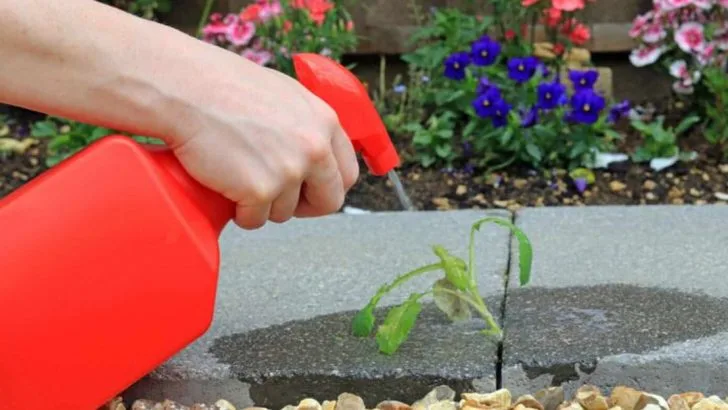Using vinegar in your garden might sound unconventional, but this simple household staple has powerful benefits for plants, soil, and even pest control. Whether you’re looking to kill weeds naturally, deter unwanted insects, or balance soil pH, vinegar can be a game-changer for gardeners who prefer eco-friendly solutions.
Beyond its well-known uses, vinegar can also clean gardening tools, extend the life of cut flowers, and even boost seed germination when used correctly. However, it’s important to know when and how to apply it to avoid damaging sensitive plants.
Discover these 18 incredible ways to use vinegar in your garden and see how this common ingredient can transform the way you care for your plants!
Weed Control
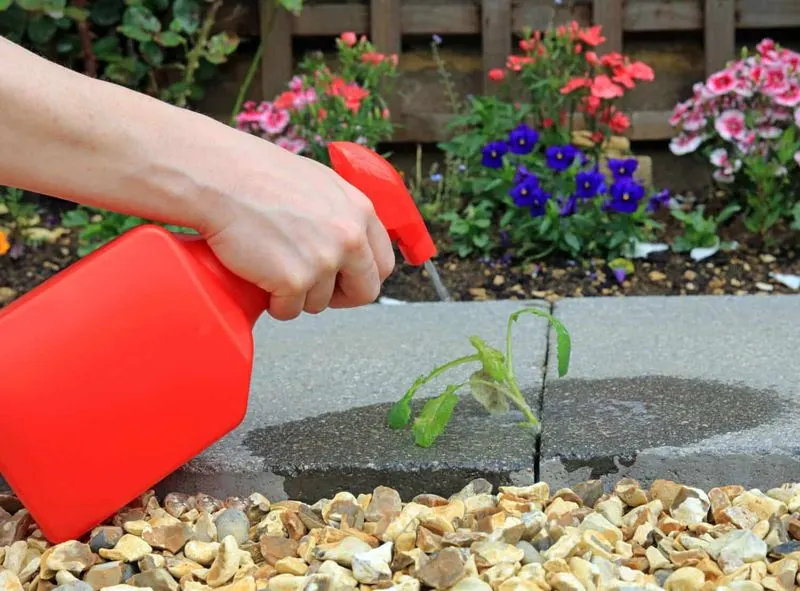
Tired of invasive weeds ruining your garden’s appearance? Vinegar offers an effective and eco-friendly alternative to chemical herbicides. Its acetic acid content disrupts the cellular integrity of weeds, causing them to dry out and die. For best results, opt for a more concentrated vinegar solution and apply it on a sunny day. With this method, you target unwanted plants without harming the surrounding environment. Be sure to focus application directly onto weeds to prevent potential damage to desired plants. A simple spray bottle application makes it easy to maintain a pristine garden path.
Ant Deterrent
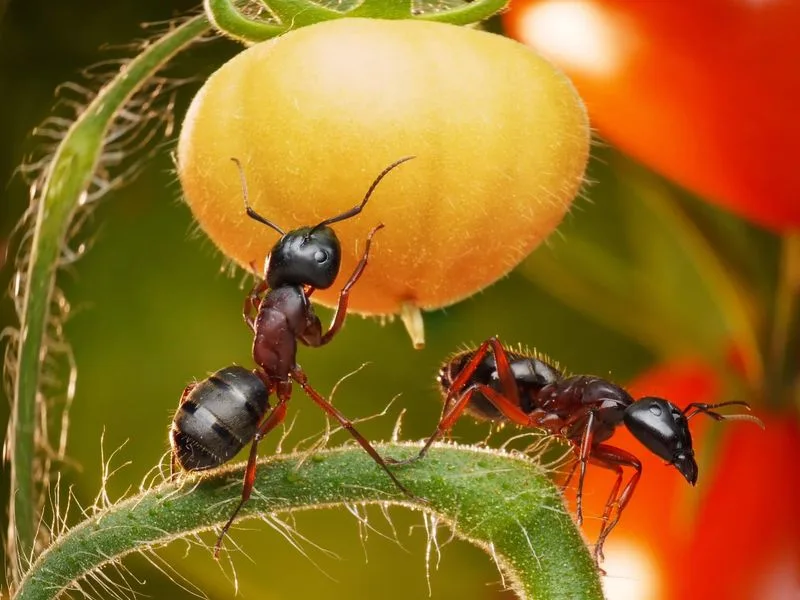
Ants can be a nuisance in any garden, creating unsightly mounds and potentially damaging plant roots. Vinegar acts as a natural deterrent, disrupting ants’ scent trails and preventing them from foraging in unwanted areas. Saturate areas of ant activity with a mix of vinegar and water to send them packing. Regular application ensures these little invaders stay away, without the need for harsh chemicals. Plus, vinegar’s acidic nature poses no threat to humans or pets, making it a safe choice for families. It’s a straightforward solution for managing ant problems effectively.
Soil pH Balancing
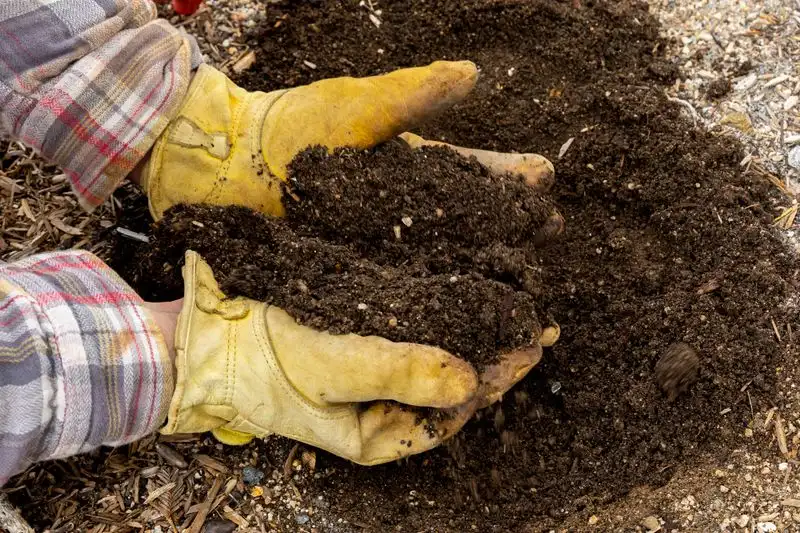
Achieving the right soil pH is crucial for optimal plant growth. Vinegar can be a handy tool for adjusting the acidity of your soil. By testing pH levels regularly, you can determine when to apply vinegar to increase soil acidity. This is particularly beneficial for acid-loving plants like blueberries and azaleas. Mix vinegar with water and apply it to the soil to gradually lower pH levels. This helps create a more suitable environment for these plants to thrive. Remember, moderation is key to prevent over-acidification, which can harm your garden’s diversity.
Slug and Snail Repellent
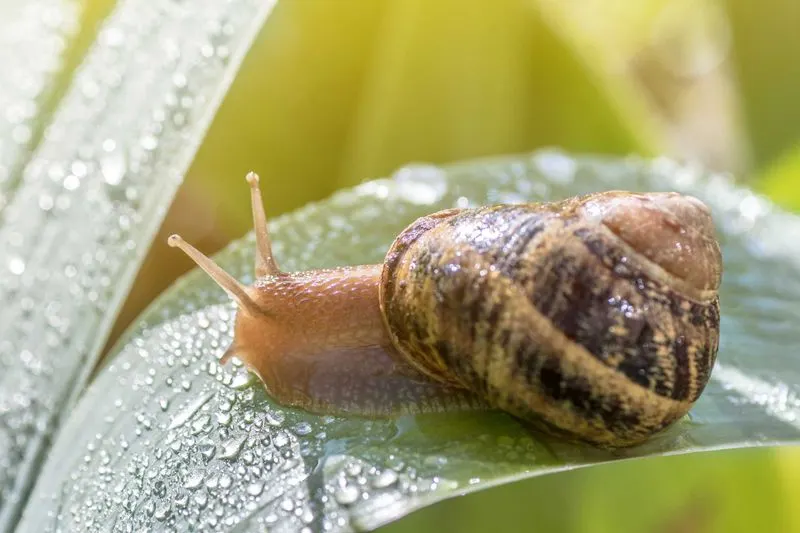
Slugs and snails can wreak havoc on tender foliage, leaving unsightly holes. Vinegar offers a safe and natural way to repel these pests. Its strong smell and acidity deter slugs and snails, reducing damage to your plants. Simply spray a vinegar-water solution around vulnerable plants in the evening when these pests are most active. This method helps protect your garden without resorting to harmful chemicals. Frequent application maintains an effective barrier, ensuring your plants stay safe and healthy. It’s an easy, budget-friendly tactic for any gardener to employ.
Flower Freshener
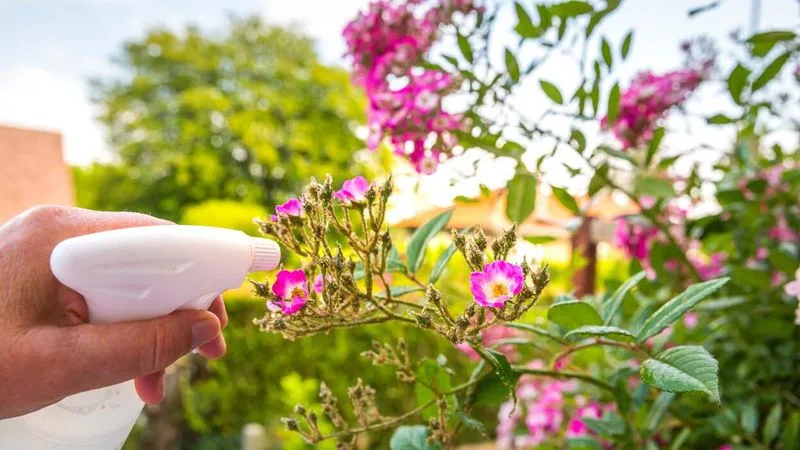
Preserve the beauty of cut flowers with a touch of vinegar. Adding a small amount to the water in your vase can extend the life of your floral arrangements. This is because vinegar acts as an antibacterial agent, preventing the growth of bacteria that can shorten the lifespan of your blooms. It’s a simple yet effective trick to keep your flowers looking fresh and vibrant for longer. Try combining vinegar with sugar to provide an extra nutrient boost. This approach not only enhances the aesthetics of your indoor spaces but also maximizes the enjoyment of your floral displays.
Fungus Fighter
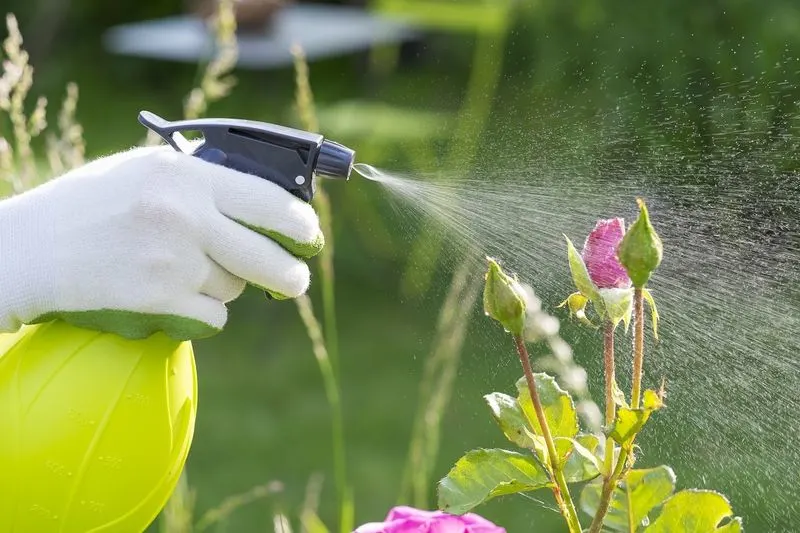
Fungal infections can be devastating to plants, causing wilting and discoloration. Vinegar serves as a natural fungicide, helping to combat these unwelcome guests. Its acidity can inhibit fungal growth on plants like roses, tomatoes, and cucumbers. Mix vinegar with water and apply it directly to affected areas for best results. Regular treatments can prevent fungi from establishing a foothold in your garden. This method is particularly useful in humid climates where fungus thrives. Embrace vinegar as a cost-effective way to maintain plant health and prevent fungal spread.
Fruit Fly Trap
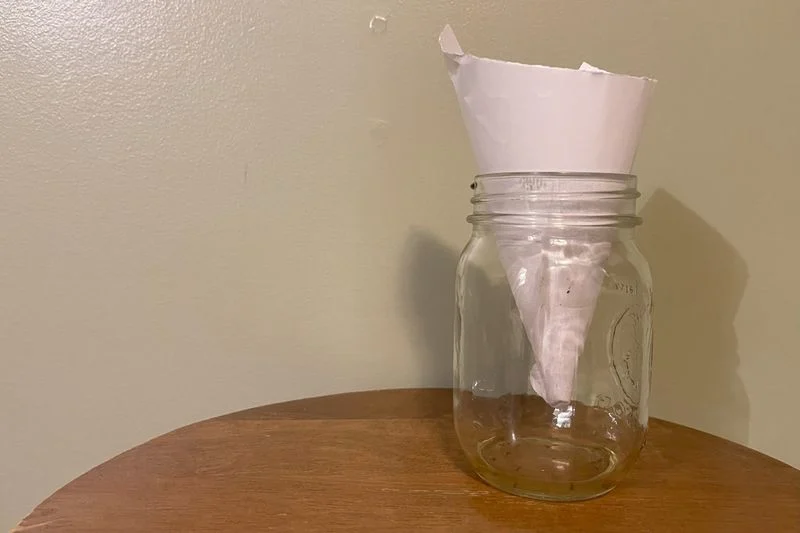
Banish pesky fruit flies with a homemade trap using vinegar. Fill a small jar with apple cider vinegar and cover it with plastic wrap, poking several holes in the top. The sweet aroma attracts fruit flies, luring them in but preventing escape. This trap is especially effective in kitchens or gardens where fruit is stored. It’s a non-toxic, environmentally friendly method to control fruit fly populations. Experiment with different vinegar types to see which works best for your situation. This DIY approach offers a simple solution to a common household and garden issue.
Plant Disease Prevention
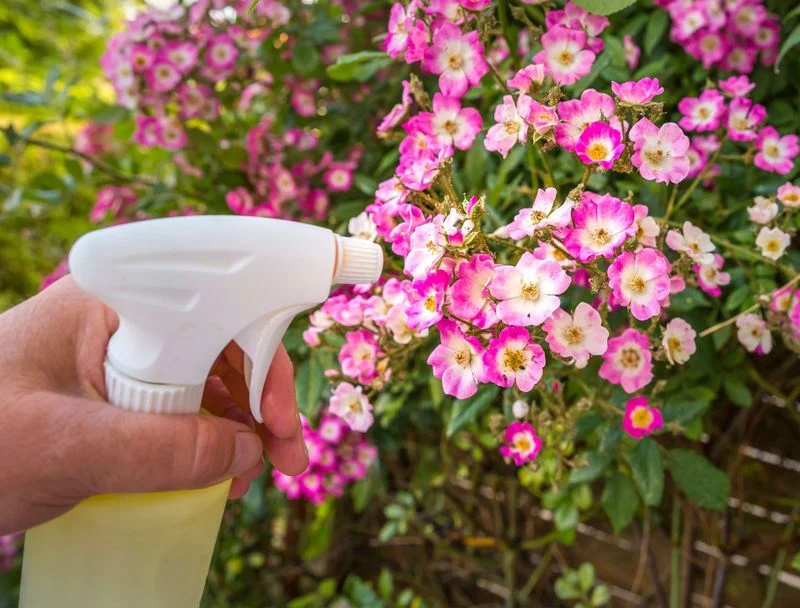
Vinegar can be an ally in fending off plant diseases. Its antibacterial properties make it effective against pathogens that threaten garden health. Regularly spraying a diluted vinegar solution on plants can help prevent diseases from taking hold. This is especially beneficial for tomatoes, cucumbers, and other susceptible crops. Consistent use not only reduces disease occurrence but also supports overall plant vitality. It’s a natural, accessible option for proactive garden care. Integrating vinegar into your routine can bolster your defense line against common garden ailments.
Insect Repellent
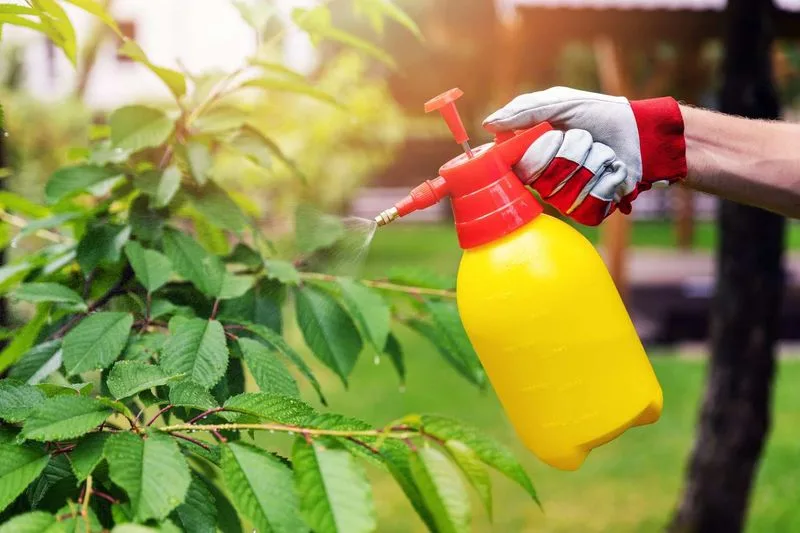
Keep harmful insects at bay without resorting to chemical pesticides. Vinegar’s strong scent acts as a natural repellent for various pests. Spraying a diluted vinegar solution on and around plants can deter bugs from causing damage. This is particularly useful for protecting vegetables and flowers from insect invasions. Regular application helps maintain a pest-free garden environment. Moreover, vinegar is safe for both humans and pets, offering peace of mind in your gardening endeavors. It’s an environmentally friendly way to manage unwanted garden visitors effectively.
Soil Nutrient Enhancer
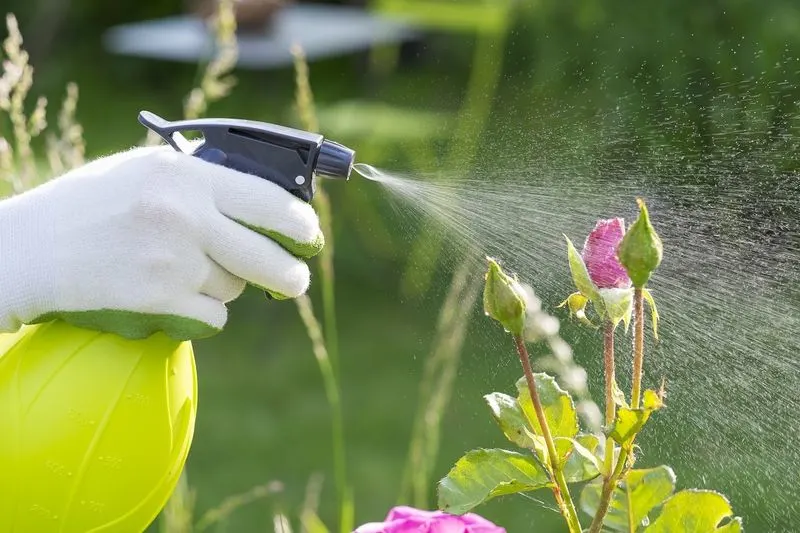
Using vinegar as a soil amendment can boost nutrient availability. Its ability to increase soil acidity makes certain nutrients more accessible to plants. This is especially beneficial for composting, where vinegar can help break down organic matter more efficiently. By integrating vinegar into your compost regimen, you can enhance the quality of your soil. It’s a practical method for gardeners aiming to enrich their planting beds. Careful application ensures that soil remains balanced, supporting diverse plant needs. Explore the benefits of vinegar to cultivate a thriving garden ecosystem.
Seed Germination Aid
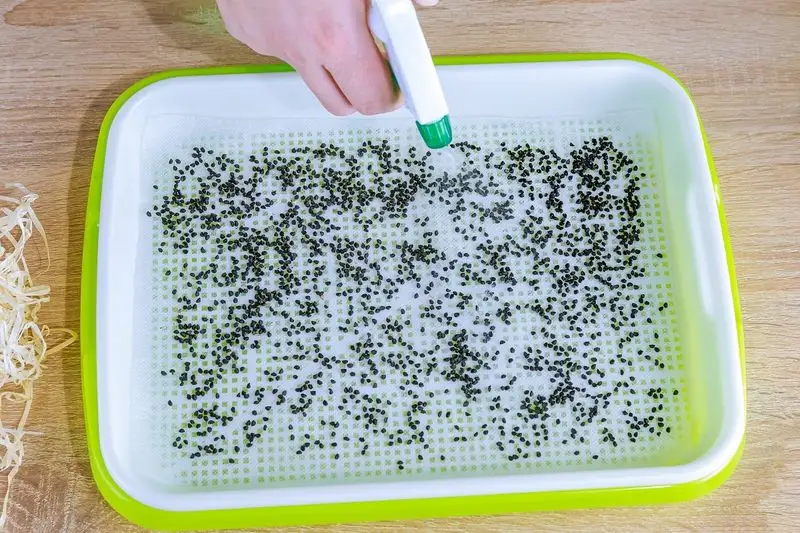
Boost seed germination with a vinegar pre-soak. Certain seeds benefit from enhanced germination rates when soaked in a vinegar solution before planting. The acid helps break down the seed coat, allowing for easier sprouting. This method is advantageous for hard-to-germinate seeds, giving them a head start in your garden. After soaking, rinse seeds thoroughly to avoid potential acidity damage. Experiment with this technique to improve plant establishment and growth. It’s an innovative approach for gardeners looking to optimize their seed-starting process and achieve more robust plants.
Bird Deterrent
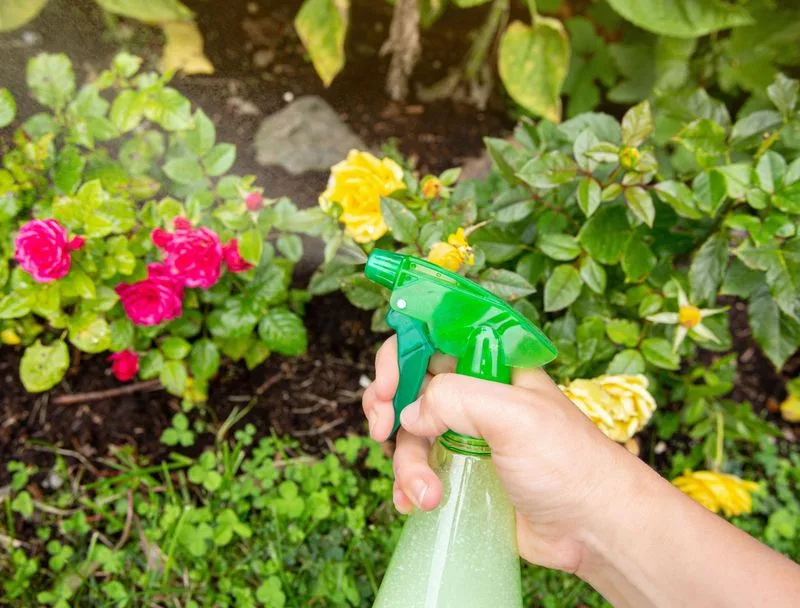
Protect your crops from feathered intruders by using vinegar as a deterrent. Birds are often deterred by the strong smell of vinegar, which can be used to protect fruits and vegetables. Soaking strips of cloth in vinegar and hanging them around your garden can create an effective barrier. This method helps safeguard your harvest without the need for expensive netting or harmful chemicals. Adjust placement based on bird activity to maximize deterrence. It’s a simple strategy to maintain crop integrity and ensure a bountiful yield. Vinegar offers a humane way to manage bird presence.
Cleaning Garden Tools
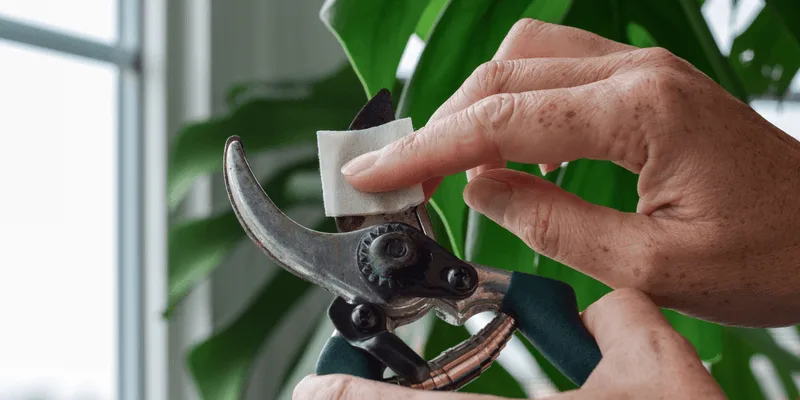
Keep your gardening tools in pristine condition by using vinegar as a cleaning agent. Its acidic nature effectively removes rust and grime, prolonging the life of your tools. Soaking tools in a vinegar solution can dissolve rust, making them easier to clean. After soaking, scrub them with a brush for best results. This practice not only enhances tool longevity but also ensures hygienic gardening practices. Clean tools prevent the spread of disease between plants, supporting overall garden health. Incorporate vinegar into your routine for efficient and eco-friendly tool maintenance.
Leaf Shine
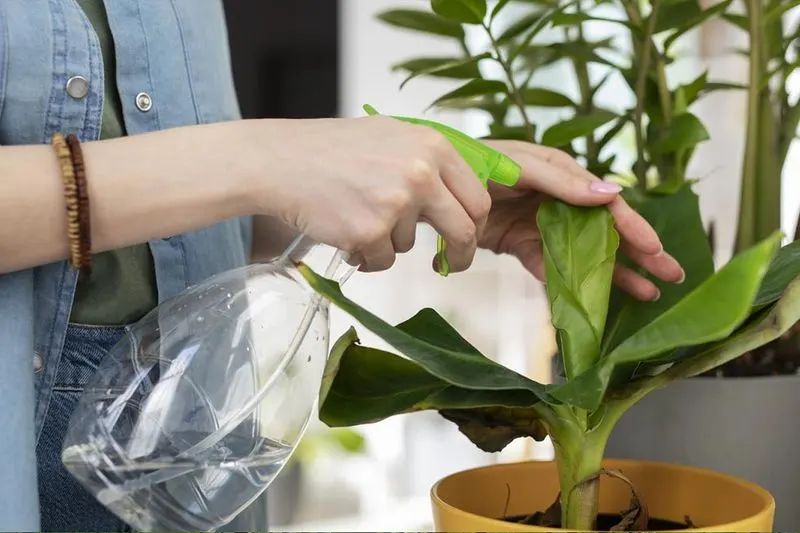
Brighten up indoor plants with a vinegar leaf shine. Dust accumulation can dull plant leaves, reducing their aesthetic appeal. Wiping leaves with a vinegar and water solution can restore their shine, enhancing their appearance. This also helps remove any mineral buildup that may occur from tap water. Use a soft cloth to gently apply the mixture, taking care not to damage delicate leaves. Regular maintenance keeps your plants looking vibrant and healthy. It’s a straightforward way to improve your indoor greenery’s look and vitality, using a readily available household item.
Animal Repellent
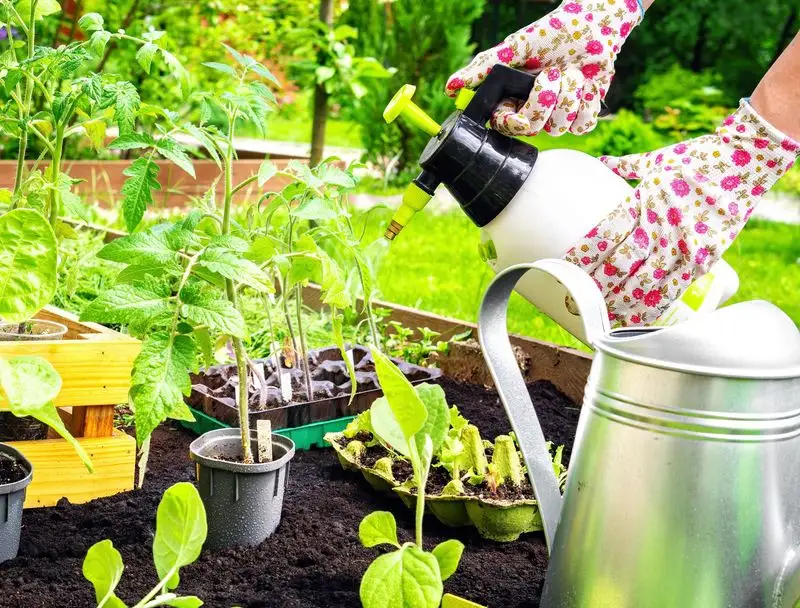
Unwanted animal visits can disrupt garden harmony, but vinegar offers a safe deterrent. Its strong odor repels curious creatures like cats and dogs. Soak rags in vinegar and place them around your garden to create a protective barrier. This method is particularly useful for gardens adjacent to wildlife areas. Regularly refreshing the vinegar ensures continued effectiveness. It’s a non-toxic, ethical approach to managing animal interference. By incorporating vinegar, gardeners can protect their plants and create a more peaceful outdoor environment. Enjoy your garden without the stress of animal disruptions.
Deodorizer for Compost
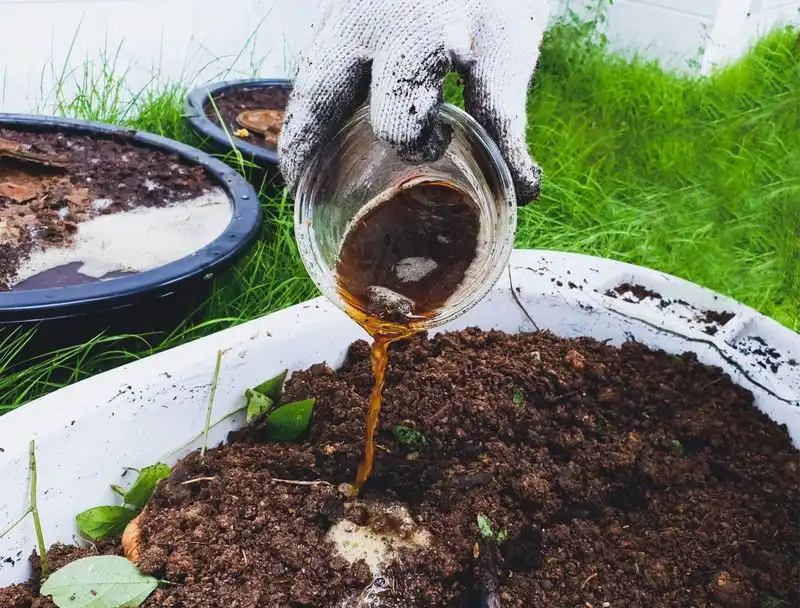
Control compost odors with the help of vinegar. Bad smells can emanate from compost piles, especially when improperly balanced. Adding vinegar can neutralize these unpleasant odors, making composting a more pleasant experience. Its acidic nature helps break down organic materials, facilitating a smoother decomposition process. Use sparingly to avoid disrupting microbial activity essential for composting. This simple addition to your compost routine can enhance your gardening practice. Enjoy the benefits of composting without the olfactory distress. Vinegar proves to be a multifunctional ally in maintaining a harmonious garden.
Mildew Remover
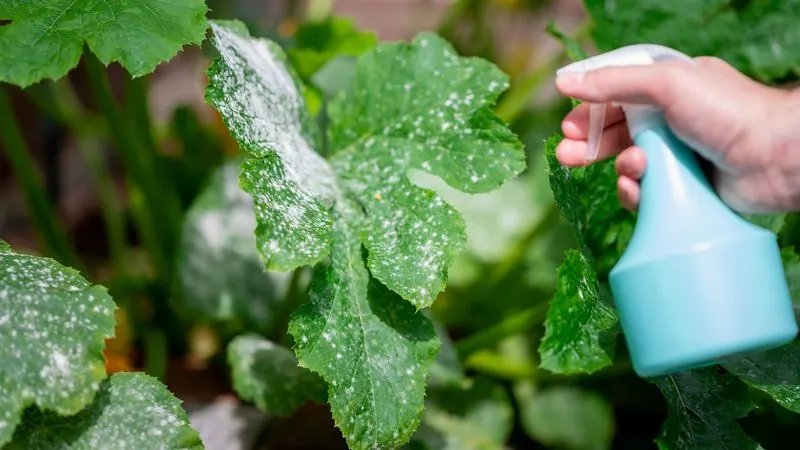
Combat unsightly mildew with vinegar, a natural and effective cleaner. Mildew can mar the appearance of garden structures and spread to plants if left unchecked. Applying vinegar directly to affected areas can eradicate mildew, restoring surfaces to their original state. This method is ideal for garden furniture, fences, and other outdoor fixtures. Regular cleaning can prevent mildew reoccurrence, keeping garden aesthetics intact. Vinegar’s affordability and availability make it an excellent choice for garden maintenance. With this simple solution, you can preserve the beauty and integrity of your outdoor spaces.
Pest-Free Pathways
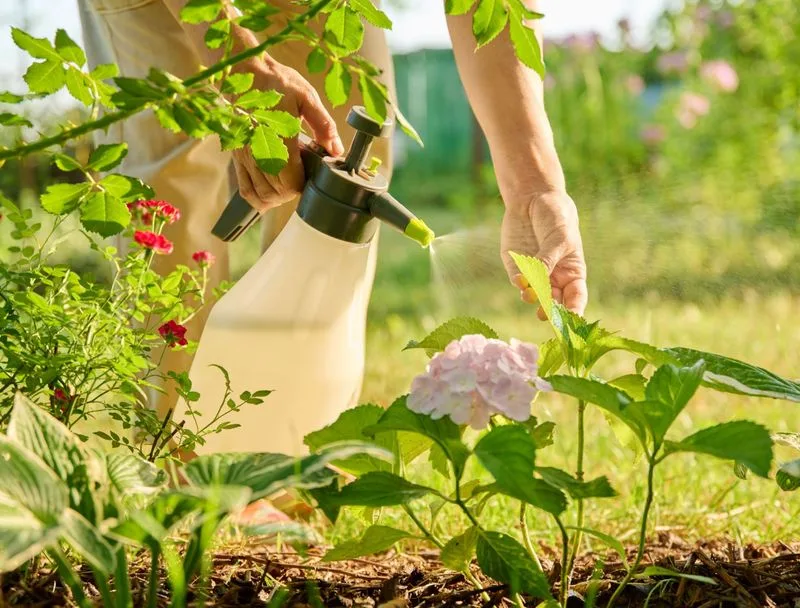
Maintain clear garden pathways with vinegar’s pest-repelling properties. Its strong scent deters ants, insects, and even small mammals from wandering onto garden paths. Spraying a diluted vinegar solution along pathways can help maintain their cleanliness and accessibility. This technique is particularly useful in gardens with frequent foot traffic or pets roaming around. Regular application ensures pathways remain free of unwanted guests, enhancing the garden’s usability. Vinegar’s non-toxic nature makes it a safe choice for gardens frequented by children and animals. Keep your garden paths inviting and pest-free effortlessly.

